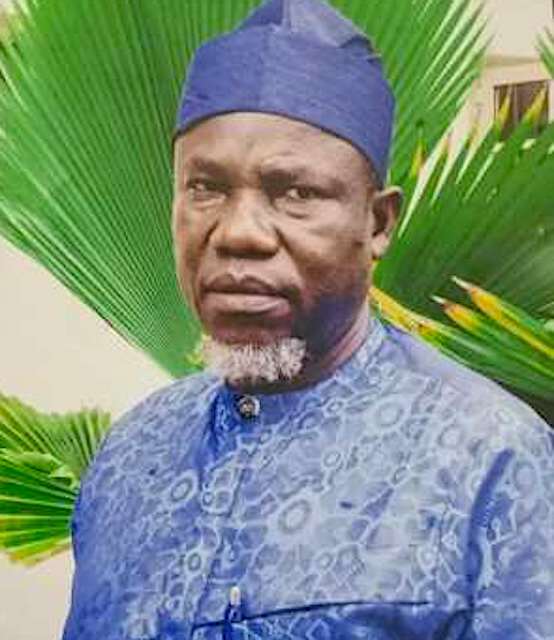A Brighter Future for the Niger Delta: Turning Promises into Protection - THISDAYLIVE
As Nigeria prepares to adopt the Midstream and Downstream Petroleum Safety and Environmental Regulations (MDPSER) 2025, a critical opportunity has emerged—not just to refine petroleum safety rules, but to rewrite a long and painful history of neglect in the Niger Delta. While the draft bill, proposed by the Nigerian Midstream and Downstream Petroleum Regulatory Authority (NMDPRA), makes progress, it must go further. For millions living in host communities, the stakes could not be higher.
Across the creeks, swamps, and coastlines of the Niger Delta, oil exploration has left deep scars. While some have benefited from the sector’s revenues, many more have paid the price in poisoned waters, dying farmlands, and vanishing livelihoods. The draft MDPSER bill represents a rare legislative moment—a chance to ensure that laws reflect the dignity and rights of the people who live closest to oil infrastructure.
Take the case of Mama Preye, a fisherwoman in coastal Bayelsa. She once relied on her daily catch to feed her family and contribute to her community. Today, her canoe must travel longer distances, yet still returns empty. Pollution and oil spills have made fishing grounds unproductive. Her story, like many others, illustrates the urgent need for a law that protects people’s livelihoods, not just pipelines and profits.
The MDPSER bill, as currently drafted, does not explicitly recognise these human costs. That omission matters. A preamble or provision that affirms the rights of host communities to health, safety, and environmental protection would send a strong messagethat Nigerian law stands with its most vulnerable citizens.
Illegal refining sites, though informal, continue to pollute ecosystems unchecked. These activities will not disappear simply by being ignored. The bill must mandate a , legal and illegal, accessible to both regulators and communities. With such a tool, a farmer in Ogoni or a Chief in Forcados could anticipate environmental risks and raise timely alarms.
Environmental emergencies—oil spills, gas leaks, toxic releases—often catch communities off guard. There is rarely prior notice, and cleanup is often delayed. MDPSER should require companies to of any occurrence, and to . Critically, such information must be provided in local languages. No law is effective if the people it aims to protect cannot understand it.
Emergency drills, another cornerstone of risk management, are routinely conducted without local participation. Yet it is the communities that understand the terrain—where the elders sit, where the children play. The bill should mandate , making communities active partners in safety protocols.
The regulation’s commitment to “cradle-to-grave” waste management remains vague without a concrete tracking system. All hazardous waste—whether from refining, storage, or spill response—must be logged, monitored, and reported to host communities. In some villages, farmlands have ceased to produce crops because of contaminated soil. Environmental protection must extend beyond words to action.A comprehensive,transparent and visble tracking system will enable trust building with community folks.
Closure of oil facilities should not mean the abandonment of communities. Once the equipment is dismantled and the personnel leave, the land and people remain. The bill must provide for and , including retraining, support for agriculture, and funding for small cooperatives.
The issue of penalties for corporate violations is another area in need of reform. Presently, fines paid by companies rarely reach the communities affected. A revised MDPSER should allocate directly to the impacted communitiesfor healthcare, water purification, or restoration projects. Environmental justice must be restorative.
Equally important is the right to be heard. Today, if a resident of Koluama in Bayelsa State or Japa in Delta State, notices a strange smell or unusual water colour, there is often nowhere to report it safely. MDPSER must require every operator to establish a that is independent, visible, and accessible. When citizens can speak without fear, companies can act before minor issues become disasters.
The MDPSER 2025 framework holds promise. But to become a turning point, it must move beyond technical provisions to human-centred protections. Around the world, extractive industries are being reshaped to reflect principles of transparency, equity, and inclusion. Nigeria cannot afford to be left behind.
The people of the Niger Delta have waited too long for justice. This bill can help turn decades of harm into a new beginning. If strengthened, MDPSER 2025 can become a global model—proof that Nigeria is serious about environmental protection, community dignity, and inclusive development.
The choice now lies with lawmakers. As public hearings progress and amendments are considered, legislators must remember: this is not merely about oil and gas. It is about fairness. It is about futures. And it is about a country choosing to protect its people as fiercely as it protects its resources.
Dr. Michael Kabi is an experienced executive, writer, and strategist with over 30 years of
Leadership in general management, government affairs, and corporate social responsibility. A
seasoned banker and chartered accountant, he has played a pivotal role in shaping corporate
policies, stakeholder engagement, and sustainable investment programs. With a doctorate in
management specialising in ESG, he blends financial expertise with a strong commitment to
social impact. His writing reflects deep insights into policy advocacy, risk management, andleadership, making him a valuable voice in business and public affairs discussions









